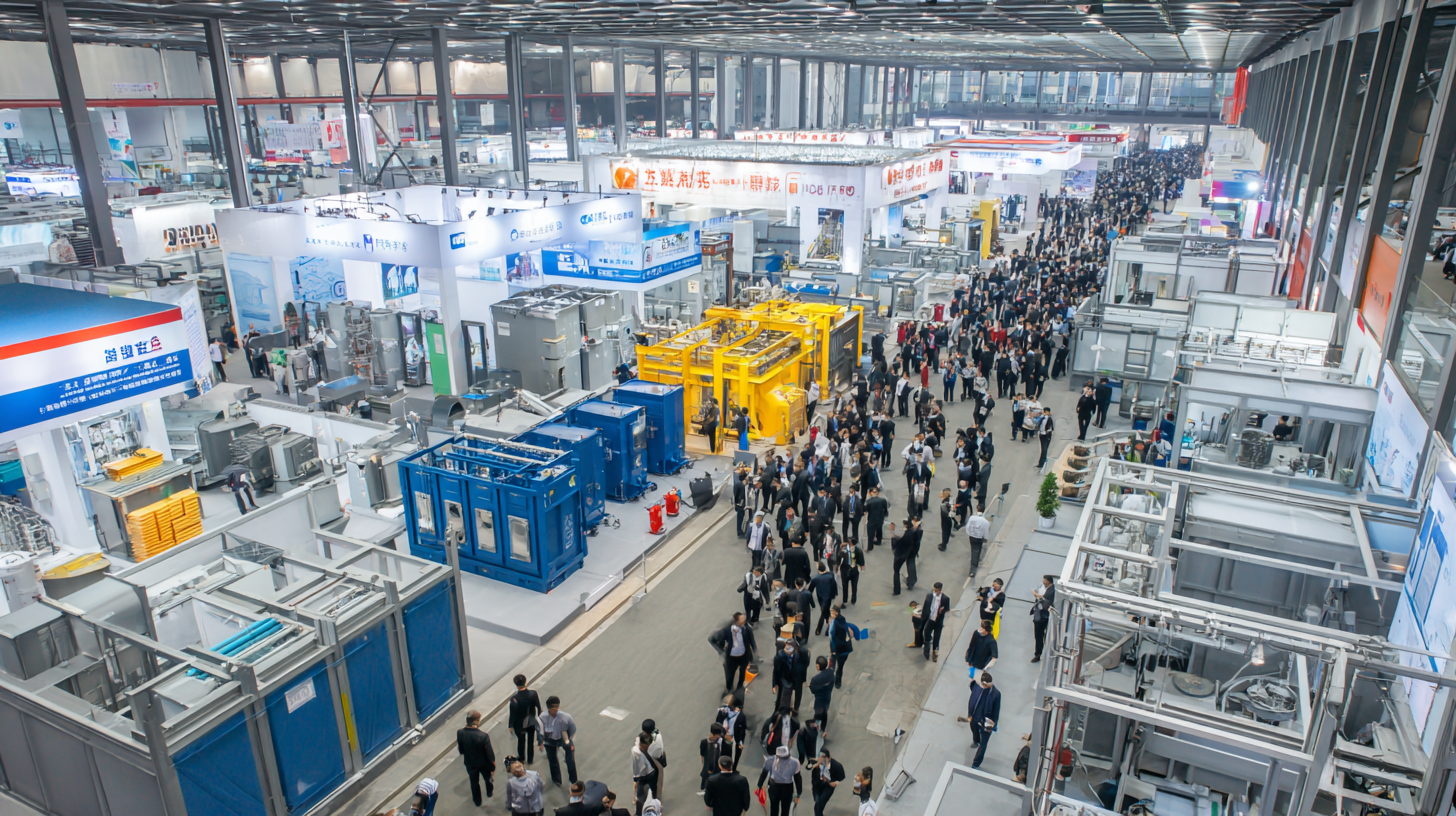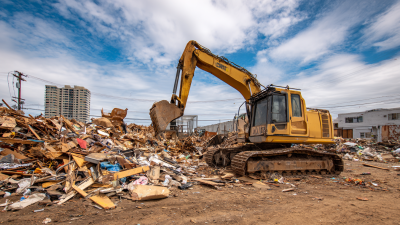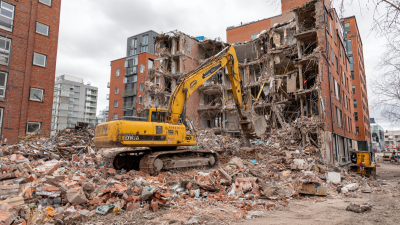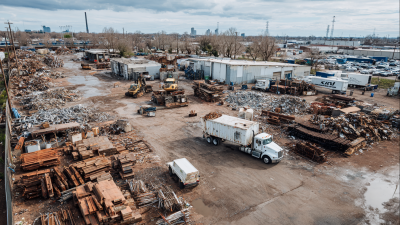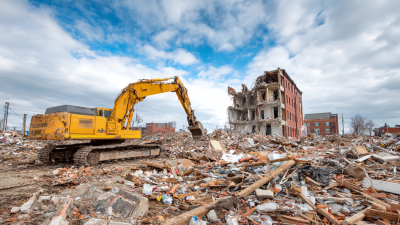Innovative Construction Rubbish Disposal Solutions Unveiled at the 138th Canton Fair 2025
The construction industry has long grappled with the challenges of waste management, as evidenced by the staggering statistics highlighting that construction waste accounts for nearly 40% of all solid waste generated globally. As innovation takes center stage, the unveiling of cutting-edge Construction Rubbish Disposal solutions at the 138th Canton Fair in 2025 reflects a pivotal shift towards sustainability and efficiency in waste management practices. Industry reports indicate that adopting advanced disposal methods can reduce waste transportation costs by up to 30% and improve recycling rates significantly. This event not only showcases the latest technologies and strategies but also emphasizes the urgent need for the construction sector to embrace responsible waste management as part of its commitment to reducing environmental impact and promoting circular economy principles.
Innovative Technologies in Construction Waste Management Showcased at Canton Fair
The 138th Canton Fair 2025 served as a pivotal platform for unveiling groundbreaking technologies in construction waste management. As the construction industry faces increasing pressure to minimize its environmental footprint, several innovative solutions have emerged that promise to revolutionize the way waste is handled. These advancements encompass cutting-edge recycling methods, efficient waste sorting systems, and sustainable disposal techniques, all aimed at reducing landfill usage and promoting resource recovery.
Among the highlights of the fair were automated systems designed for construction sites, which enable real-time tracking and management of waste materials. Participants showcased mobile apps that facilitate better communication among contractors, ensuring that waste is sorted and disposed of responsibly. Additionally, several exhibitors presented eco-friendly materials that not only lessen waste generation but also enhance the overall sustainability of construction projects. As these innovative technologies gain traction, the potential for transforming the construction industry through enhanced waste management practices becomes increasingly apparent.
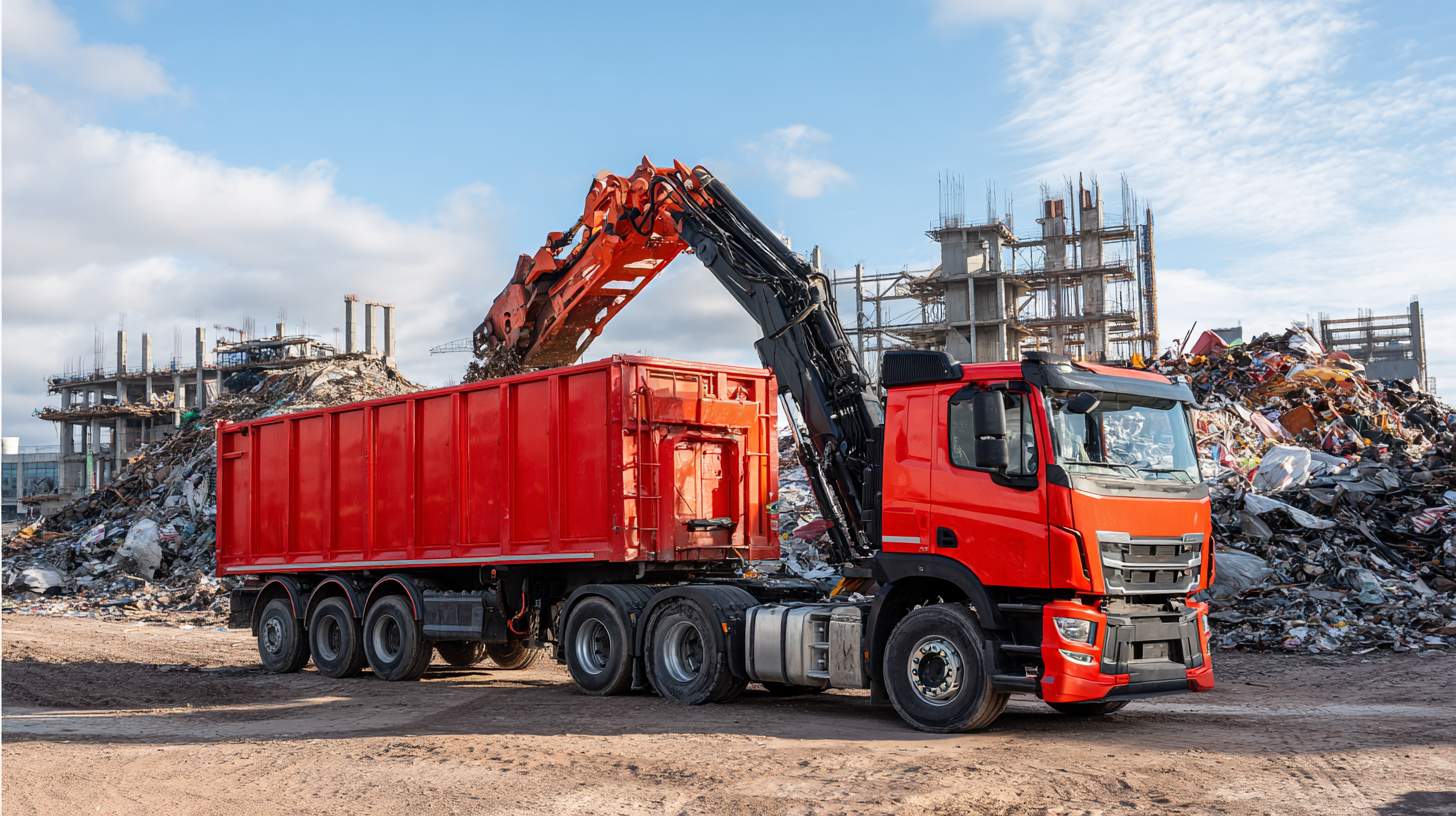
Eco-Friendly Solutions for Sustainable Construction Waste Disposal
At the 138th Canton Fair 2025, a set of innovative solutions aimed at addressing the construction waste challenge were presented, highlighting a commitment to eco-friendly practices. With the construction industry generating a significant amount of waste, these new methodologies prioritize sustainable disposal methods that not only reduce environmental impact but also promote resource recovery. From recycling materials such as concrete and metals to repurposing waste for future projects, these solutions reflect a growing awareness of the need for a circular economy in construction.
One notable aspect of the unveiled solutions is the integration of advanced technology in waste management processes. Smart sorting systems equipped with AI are designed to efficiently separate recyclable materials from debris, maximizing recovery rates and minimizing landfill contributions. Additionally, mobile apps that facilitate real-time tracking of waste disposal and recycling efforts empower construction companies to adhere to sustainability goals, ensuring compliance with evolving environmental regulations. Together, these innovations not only contribute to a greener future but also enhance the efficiency of construction operations, paving the way for industry-wide transformation.
Innovative Construction Rubbish Disposal Solutions Unveiled at the 138th Canton Fair 2025 - Eco-Friendly Solutions for Sustainable Construction Waste Disposal
| Solution Type |
Description |
Advantages |
Impact on Environment |
| Recycling Facilities |
Dedicated centers for recycling construction waste materials like concrete, wood, and metals. |
Reduces landfill waste, conserves raw materials, and lowers production costs. |
Decreases pollution and minimizes resource depletion. |
| Waste Sorting Technologies |
Advanced systems for sorting different types of construction waste efficiently. |
Increases recycling rates and improves efficiency of waste handling. |
Reduces contamination of recyclable materials and enhances waste recovery. |
| Mobile Waste Collection Units |
Transportable units designed to collect and process waste on-site. |
Convenience of on-site disposal, reducing transportation costs and logistical issues. |
Minimizes CO2 emissions related to transport of waste materials. |
| Compostable Waste Solutions |
Systems to process organic components of construction waste into compost. |
Transforms organic waste into valuable soil amendment, promoting circular economy. |
Reduces overall waste sent to landfills and improves soil health. |
Collaboration Between Industry Leaders to Tackle Rubbish Challenges
At the 138th Canton Fair in 2025, industry leaders gathered to unveil innovative solutions for construction rubbish disposal, emphasizing the critical need for collaboration in tackling the challenges associated with waste management. According to a report by the Global Waste Management Outlook, construction and demolition activities account for about 35% of total waste in major cities, highlighting the urgency to develop effective disposal and recycling methods. The collaborative efforts showcased at the fair demonstrated a shared vision among companies to address these pressing issues through technology and sustainable practices.
The partnerships formed at the fair included prominent firms in construction, recycling, and waste management, all aiming to leverage their combined expertise to enhance operational efficiency. A recent study from McKinsey indicates that effective waste management can reduce disposal costs by up to 30%, showcasing not only environmental benefits but also financial incentives for businesses. By sharing best practices and developing joint initiatives, industry leaders are setting new standards for sustainable waste handling, ensuring that the construction sector can thrive while minimizing its environmental footprint.
Emerging Trends in Recycling Practices at the 138th Canton Fair
At the 138th Canton Fair 2025, the spotlight was on
emerging trends in recycling practices that promise to reshape how the construction industry approaches waste management. With innovative construction rubbish disposal solutions being unveiled, the fair highlighted an array of technologies and methods designed to enhance recycling processes. Industry leaders emphasized the importance of integrating sustainability into construction, showcasing innovations such as
advanced sorting machines and eco-friendly materials that minimize waste generation.
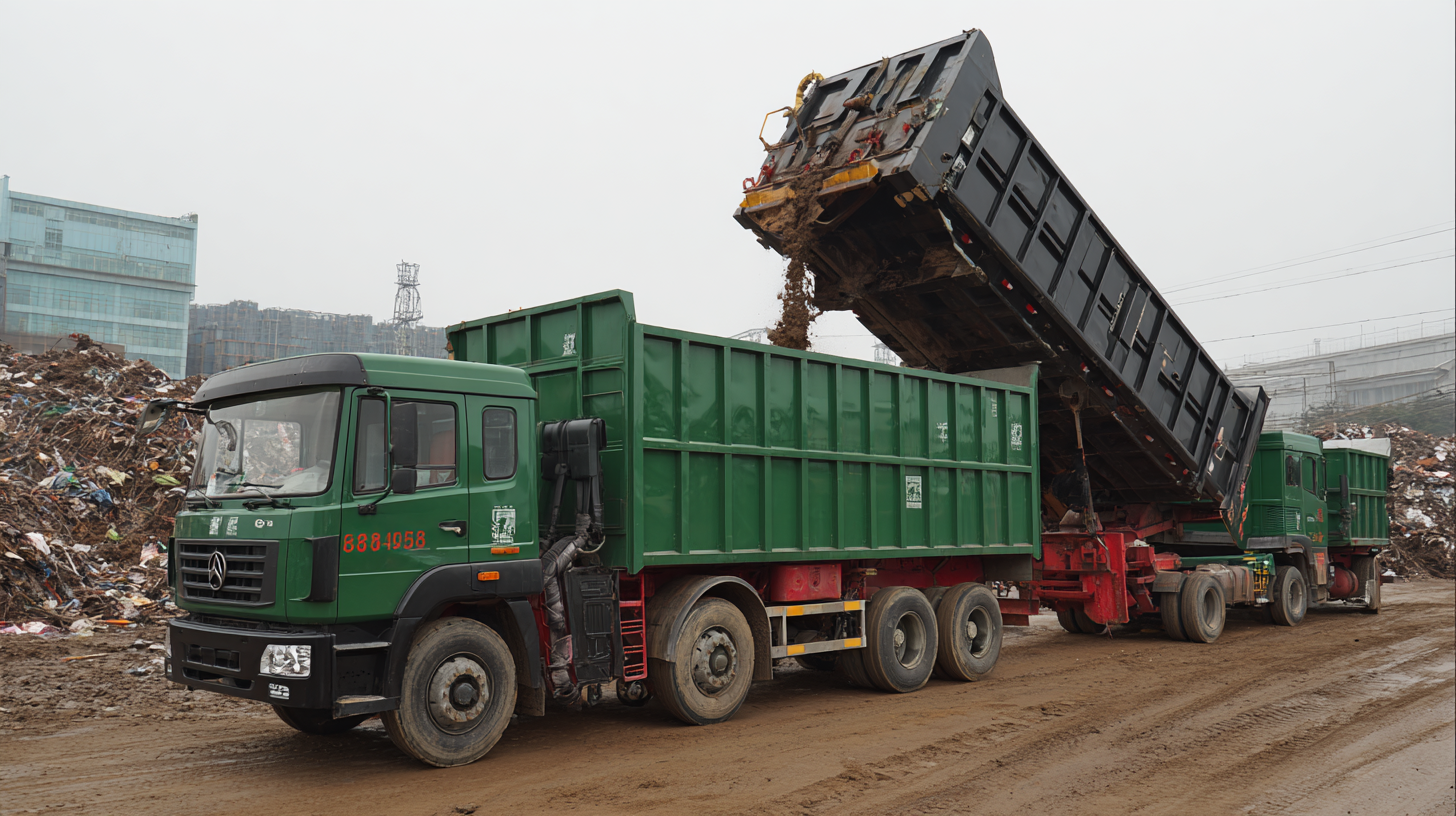
Tips for construction firms looking to adopt these emerging trends include investing in
training for staff to properly sort and recycle materials on-site, which maximizes recycling efficiency. Additionally, partnering with innovative recycling companies can provide access to the latest technologies and methodologies, streamlining the disposal process and reducing environmental impact. Regularly reviewing and updating recycling practices ensures that firms remain in line with sustainability goals while also adhering to changing regulations in the industry.
The incorporation of these practices not only benefits the environment but also creates a
positive image for construction companies. Keeping the workforce informed about the importance of recycling and sustainability initiatives fosters a culture of responsibility throughout the organization. By embracing these emerging trends, construction companies can significantly enhance their operational effectiveness while contributing to a
greener future.
The Role of Regulations in Shaping Waste Disposal Innovations
The evolving landscape of waste disposal innovations is significantly influenced by regulatory frameworks, as highlighted in recent discussions on sustainability and circular economy practices. Regulatory measures, such as the EU’s Packaging Waste Directive, play a crucial role in reshaping how businesses approach packaging and waste management. These regulations not only dictate compliance but also encourage companies to adopt advanced recycling methods and materials that minimize environmental impact. They serve as catalysts for innovation, pushing businesses to explore sustainable practices that align with legal requirements.
In the construction industry specifically, the introduction of innovative waste management solutions is essential for reducing the environmental footprint of building projects. Effective regulations concerning materials handling during both construction and demolition phases are vital for optimizing waste disposal strategies. As industries worldwide face mounting pressure to implement efficient waste management systems, governmental policies can drive the development and adoption of cutting-edge technologies, such as AI-driven waste sorting systems and smart recycling initiatives. This ongoing interaction between regulation and innovation is pivotal for achieving sustainable waste management practices across various sectors.
Innovative Construction Rubbish Disposal Solutions at the 138th Canton Fair 2025
This chart illustrates the various types of innovative waste disposal solutions showcased at the fair, highlighting their effectiveness in improving waste management practices.

Home
About Us
Products
 Concrete Mixing Plant
Concrete Mixing Plant
 HZS Series Belt Concrete Mixing Plant
HZS Series Belt Concrete Mixing Plant
 HZS Series Bucket-Lifting Type Container Concrete Mixing Plant
HZS Series Bucket-Lifting Type Container Concrete Mixing Plant
 HZS60 Mobile Concrete Mixing Plant
HZS60 Mobile Concrete Mixing Plant
 HZS Series Bucket-Lifting Type Concrete Mixing Plant
HZS Series Bucket-Lifting Type Concrete Mixing Plant
 HZS Series Mobile Concrete Mixing Plant
HZS Series Mobile Concrete Mixing Plant
 HZS Series Top-Mounted Concrete Mixing plant
HZS Series Top-Mounted Concrete Mixing plant
 HZS Series Semi-Top Mounted Concrete Mixing Plant
HZS Series Semi-Top Mounted Concrete Mixing Plant
 Stabilized Soil Mixing Plant
Stabilized Soil Mixing Plant
 Asphalt Mixing Plant
Asphalt Mixing Plant
 Sand & Gravel Crushing and Screening Plant
Sand & Gravel Crushing and Screening Plant
 RTPF350DS Crawler Mobile Impact Crushing Plant
RTPF350DS Crawler Mobile Impact Crushing Plant
 RT116JH Crawler Mobile Jaw Crushing Plant
RT116JH Crawler Mobile Jaw Crushing Plant
 RT116JE Crawler Mobile Jaw Crushing Plant
RT116JE Crawler Mobile Jaw Crushing Plant
 RT300CE Crawler Mobile Cone Crushing Plant
RT300CE Crawler Mobile Cone Crushing Plant
 RT300CH Crawler Mobile Cone Crushing Plant
RT300CH Crawler Mobile Cone Crushing Plant
 RT5015H Mobile Scalping Screen
RT5015H Mobile Scalping Screen
 RT315VSIE Crawler Mobile Sand Maker
RT315VSIE Crawler Mobile Sand Maker
 RT3YK6020 Crawler Mobile Screening Plant
RT3YK6020 Crawler Mobile Screening Plant
 RT3YK6020M Modular Screening Plant
RT3YK6020M Modular Screening Plant
 RTF260M Modular Counterattack Crushing and Screening Integrated Machine
RTF260M Modular Counterattack Crushing and Screening Integrated Machine
 RTF350M Modular Impact Crushing Plant
RTF350M Modular Impact Crushing Plant
 RTF450M Modular Impact Crushing Plant
RTF450M Modular Impact Crushing Plant
 Construction Waste Resourceful Treatment Line
Construction Waste Resourceful Treatment Line
Performances
Video
News
Blog
Contact Us
 WDB Series Foundation-Free Stability Soil Mixing Plant
WDB Series Foundation-Free Stability Soil Mixing Plant LCB Series Emulsified Asphalt Cold Regeneration Secondary Mixing Plant
LCB Series Emulsified Asphalt Cold Regeneration Secondary Mixing Plant LB Series Asphalt Mixing Plant
LB Series Asphalt Mixing Plant LBR Series Integrated Asphalt Mixing Plant
LBR Series Integrated Asphalt Mixing Plant LBRN Series Counterflow Integral Asphalt Mixing Plant
LBRN Series Counterflow Integral Asphalt Mixing Plant RZS Series Asphalt Mixing Plant
RZS Series Asphalt Mixing Plant RTZS120 Series RAP Crushing & Screening Plant
RTZS120 Series RAP Crushing & Screening Plant Construction Waste Resourceful Treatment Line
Construction Waste Resourceful Treatment Line